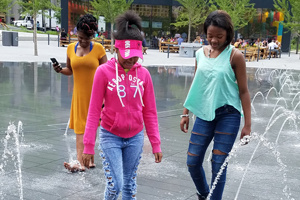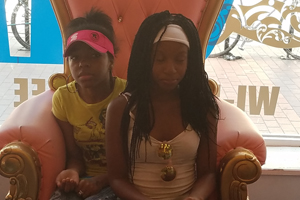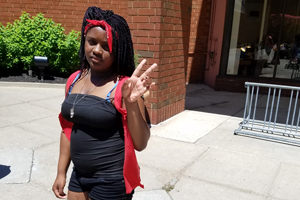Detour Mentoring Program
Mission Statement
To support emotionally, socially underdeveloped, educationally challenged (or combination of all three) at risk youth in a mentoring environment in an effort to improve their academic achievements, self-esteem, social competence, decision-making and avoidance of problem/high-risk behavior by providing a supportive relationship with an adult mentor, who will work to help the youth achieve his or her potential. The focus of outcomes from this program is targeted toward the youth as the primary recipient of services, not mentor.
PROGRAM OVERVIEW:
The 10-month mentoring program runs during the time the youth is attending school, in either a traditional or non-traditional educational setting. The program is designed to be delivered as a stand- alone program, or integrated into an existing program that needs a mentoring component.
Three Phases
Each phase of the mentoring program has specific outcomes and results that are layered into the next phase to support the fostering of the relationship between the mentor and the youth, which includes the involvement of the youth’s support network.
Phase I: Cultivating & Bonding
Phase II: Mentoring & Support
Phase III: Weaning & Independence

Phase I
Building the relationship between the mentor and the youth is a priority. The mentor and mentee will meet 2 times per week. The structure allows the two to engage in specific activities that foster a meaningful bond, e.g. mentor/mentee group sessions, goal-setting, and establishment of expectations.
Mentor/Mentee Group Sessions
The mentor and mentee take part in various, intentional activities to build trust. Initially, the activities are conducted in a classroom setting. In this stage, the interaction between the two is observed to ensure an appropriate mentor/mentee match.
Goal-Setting
Along with his/her mentor and support network, the mentee sets educational, personal, developmental, and social goals. As part of the program’s structure, the mentee earns an incentivized reward for every goal that he/she achieves.
Establishment of Expectations
These sessions rely heavily on the support networks of the youth. Expectations of program requirements and outcomes are set with input from the youth’s parents, guardians, and/or caregivers. During the first 4 weeks of the program (Phase I, and the first week of Phase II), parents, guardians and/or caregivers of the youth are required to attend at least two family sessions in which they will be presented with:
* A program overview and Q&A opportunity
* Youth assessment results
* Meet & greet mentors and staff
* Family resources support information
* Goal setting, establishing boundaries, expectations, etc.

Phase II
During Phase II, the mentor and mentee will meet according to a set schedule that supports the needs of the mentee and his/her goals, which will include home visits, school visits (when appropriate) consistent communication, monitoring youth progress, planned activities and field trips, social exposure, guidance, and support.
Acclimation:
Mentees will become more familiarized with other resources and available options besides those that have already been made available to them.
Social Exposure: In addition to meeting inside the youth’s home, the mentor and mentee will develop a meaningful relationship outside the youth’s home to engage in various social environments or community-related activities such as: civic and community events, dinner, sporting events, educationally-focused events, community service project.
Note: Mentees will be required to earn the privilege to participate in some of the planned activities as an incentive.
Working in Teams

Phase III
In the final weeks of the program, the mentor begins to decrease his or her presence in the mentee’s life, with the purpose that the youth will become more self-directed and independent. This weaning stage generally begins at the 5th month of the mentoring cycle. The young adult will then journal his or her mentoring experience in video form. The video will then be featured at the mentor-mentee banquet.
Community Service & Volunteerism
Resiliency, Integrity & Personal Character







